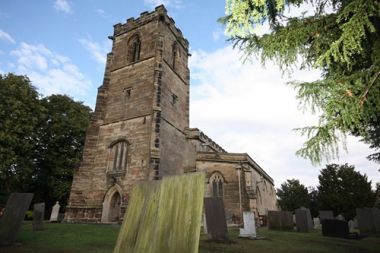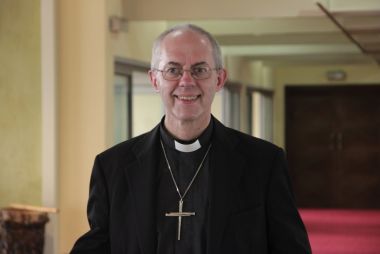Could we really re-evangelise the country by shutting down most churches?

When we talk about someone facing an existential crisis, we often mean that they're unsure of their identity, don't know how to move forward and are struggling to work out what they stand for – or even whether there's meaning in life.
But to apply the term more literally, it means that person is fighting to survive – their very existence is being called into question – an existential crisis then, is a matter of life and death.
Both these definitions apply well to the Church of England. The Established Church is, by any definition, in serious trouble.
In previous generations the CofE was the default for many English people. In days gone by, we ticked the 'Anglican' box on official forms, and even though we weren't as regular a churchgoing nation as might be presumed, our laws, culture and hierarchy were reliably Anglican. And plenty of people did attend Church of England services.
Much of that has been diluted during the 20th and 21st Centuries. Regular Anglican attendance is now around one million people per week in England. There are regular calls to disestablish the Church. And you don't have to look far to see a church building that has been turned into flats (there are several within a five minute walk of my own east London home). That's before we even get on to the theological divisions, which continue to put strain on relationships between Anglican churchgoers.
All in all, the Church of England is in the grip of the quintessential existential crisis. Someone who clearly recognises this is Justin Welby, the Archbishop of Canterbury. In fact, it's supposedly the reason he got the job in the first place. Of all the potential candidates, he was thought to be the one who best understood the monumental task facing the Church if it was to survive, let alone thrive.
Welby has taken to this job with gusto. He's begun to set out his plan to reform and renew the CofE with a series of administrative shake-ups, a renewal of religious communities and an increased focus on prayer and evangelism. It's an impressive start. But one man can't do it alone. Indeed the Archbishop and his team have not been short of advice on what he should do next to shore up the creaky foundations of the Church.
The latest came from Rev Dr Giles Fraser in the Guardian. Dr Fraser is from the liberal wing of the church. To stereotype for a moment, he wouldn't be the first name you would think of when it comes to ideas for the re-evangelisation of the nation. But Fraser is a deep thinker and his idea for reform deserves to be taken seriously.
Essentially, he advocates that the thousands of underused Anglican churches in rural areas should stop being used as churches altogether. Many have tiny congregations – often under 10 people. Instead he'd like to see them turned into community assets – such as post offices, village shops and community centres. Then he wants fewer but larger churches to be formed from the remnants of these parishes, which would provide an excellent standard of worship, good fellowship and a more sensible distribution of resources.
These 'Minster' style churches would be used as bases to begin to renew the Church – as resources are centred on one place rather than many in a given local area. As a result, much more time and energy can be given to mission, which in theory would lead to growth in attendance and presumably (although he doesn't really spell this out) a rebirth in at least some of the local church buildings which had been mothballed or used for other purposes.
It's an attractive proposition. The parallels he points to with the old Minster system are obvious. Minsters were essentially mission bases, which were used for the conversion of England in the first place. A core of people (usually monks) gathered in the Minster church for regular prayer and worship. From these centres, smaller local churches were created until eventually every part of England was covered by a 'parish,' meaning that there was a local church in each community. It's this commitment to the parish system that has now become a millstone round the neck of the Church in Fraser's mind – because so much time, money and energy is spent keeping old buildings maintained, clergy are employed to run 10 or even 15 small congregations, and the whole system is close to collapse.

The merits of retreating from the parish system and reverting to a Minster-style system could be major. Firstly, the chance to meet with many other believers, rather than just a handful, will lead to encouragement and a sense of fellowship and camaraderie. Having worship which is done well (rather than simply 'making do') will help to attract new people and will also bless everyone. The simple maths of the situation in many rural areas are that there aren't enough clergy to keep the show on the road. This problem would disappear overnight and the Minster-style church could have a team of clergy and other staff, who would be able to spur each other on. These are all huge positives and would be difficult, but exciting to achieve.
There is an extent to which the network of churches planted by Holy Trinity, Brompton (HTB) already follows this model. A large group of people plants into an existing church and it begins to function as a nerve centre, from which other more locally focused congregations are themselves planted.
However, there are some downsides. In getting rid of the parish system, the Church would be abandoning one of its key principles. The idea that every community has an Anglican church in it, which is there for the use of everyone – be they Christian or not – is incredibly powerful. Indeed, I know of people who have walked into churches to find some peace having never been regular churchgoers before. They have found a warm welcome and ended up being baptised believers. This would not happen if there simply wasn't a functioning church in many communities.
Secondly, the message that this huge change to the system would send out would inevitably be spun by a cynical secular media as a 'retreat.' It would be further grist to the mill of those who suggest the Church is on its last legs. If the idea is to make the Church more viable, it would be tough to achieve that while it was being told as a story of defeat.
Finally, there will, as Fraser notes, be major resistance to the change. From within churches there will be opposition to such a move. Some of this is perfectly understandable. People whose local church is a cherished place where they and their ancestors have experienced significant life events will be loathe to see that place closed to worship in favour of a bigger church some miles away. There will also be some disingenuous opposition from those who support keeping things as they are just because that's how things have been done for a long time – even in the face of the major decline.
It will be fascinating to see if this idea gains traction, or even if it is piloted anywhere. The growth of church attendance in London in the last decade shows that decline can be reversed. This would be a gamble and a big one. Indeed it could be one of the final throws of the dice for the Church of England as a major national church. But who knows, the Spirit might be in it – and the Minsters of the future may take us in the direction many of us long for – in various wings of the Church – towards the conversion of England.











